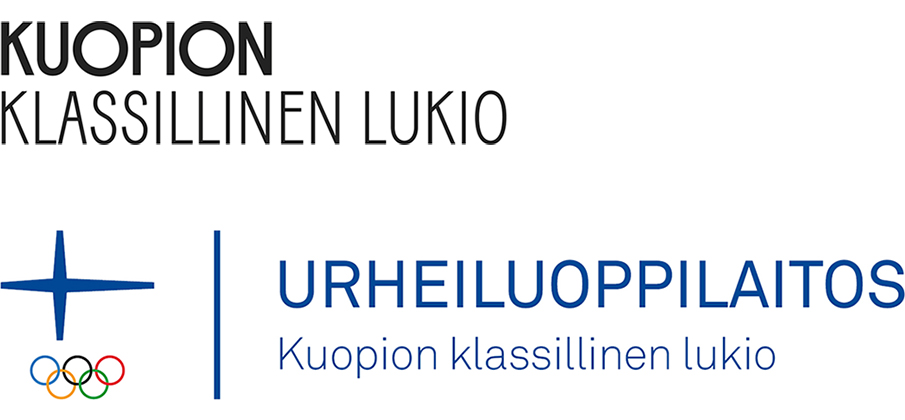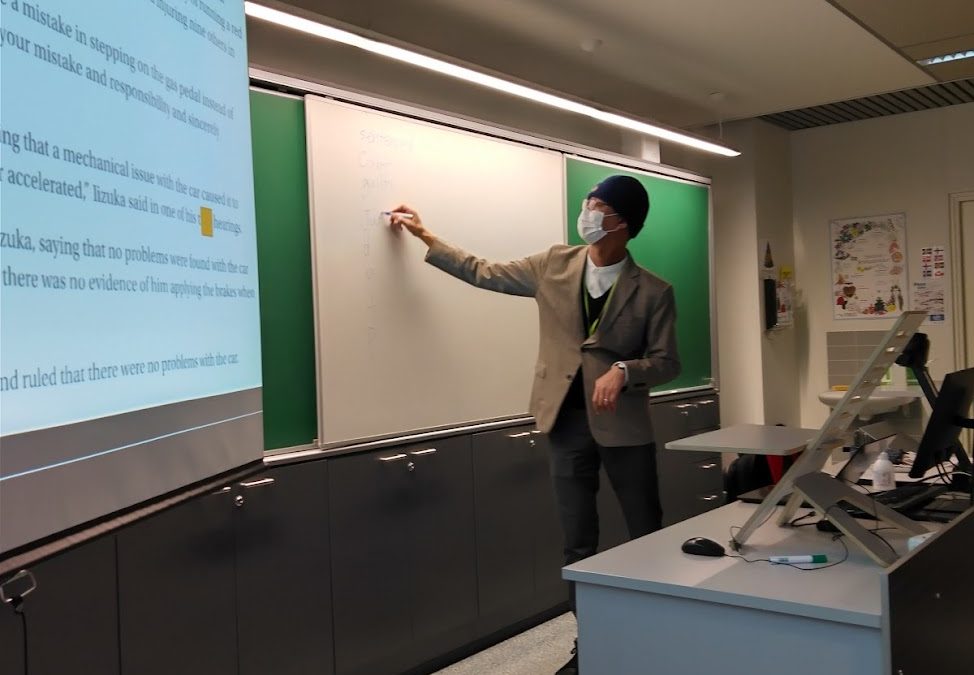I spent four weeks in Kuopio from late October to November, 2021. The time I spent there might have been a bit shorter compared to previous visitor-teachers from Japan or other overseas countries, but I could never overemphasise the value and meaning the programme has brought to me, and hopefully, also to students and teachers in Kuopion Klassillinen Lukio.
From what I hear, my visit was the first culture exchange happening ever since the pandemic had changed everything. Indeed, the pandemic seemed to have changed everything, but it certainly didn’t change how we embrace difference and diversity of the global human society. It didn’t make us think like, “Now the world is separate again like in the medieval era, so let’s just conveniently forget about all those different people, countries, cultures, beliefs, and values.” What happened was the opposite. Many, if not all, people were caring about international news of foreign countries with skyrocketing case numbers, not only because of fear but also because of compassion. In many countries, it was not very late that people realised minority groups in each society also needed attention, information and care. And the value of all those lost opportunities of studying abroad, cultural exchange, homestay experiences and so on has not been forgotten. My visit to Kuopio was exactly an instance of such mindset of the 21st century citizens, for whom living in diversity is just a norm, not an effort.
For any educator, visiting Finland and learning what kind of educational system it has is kind of an obvious dream, because, as you must have heard, “It’s the best education in the world.” But many students and teachers alike asked me what brought me to this inland town called Kuopio. I couldn’t really articulate what I was feeling while I was in Finland, but now I have had sufficient time to ponder over that; The answer lies within the culture of Kuopion Klassillinen Lukio. You were the first school that offered a place for me in all Finland. You were the readiest, most willing, and most welcoming people, which resulted in the quickest decision on the permission for my visit. I know, students might think, “It was not us but the teachers who made that decision.” But then, those teachers wouldn’t have said yes to having visitors like me if they had believed students were incapable of drawing the best out of international exchange experiences like this. Honestly speaking, I would think that same way if I was responsible for having a Finnish visitor-teacher in my school in Tokyo. “Are my students ready for that?” would be the first and most important question. Your teachers’ answer was yes, and it resulted in the programme. So, it was definitely you, students, that brought me to Kuopio.
I had many chances to visit and observe various classrooms. They included mathematics, music, social psychology, religion, language, literacy, social studies, technology, and even some of the events held by the student council. I even gave visitor lectures on many topics – language, culture, religion, crime and justice of Japan. One of such classes I remember most vividly is a visit lecture to a social psychology class, where I spoke extensively about the dilemma of Japan’s society between ethical progress and economic progress. I talked about how remnants of the feudal, patriarchal values are torturing both women and men by weirdly being the kind of last resort for businesses’ survival. Because companies have implemented what is called lifelong employment scheme as almost the only human resource strategy for over a century, employees are trained only for exclusively company specific cultures and skills with very little chance of successfully changing jobs, and this low labour market fluidity makes women unable to re-enter mainstream workforce after maternity, while men, who are expected to be the primary and oftentimes the only breadwinner, are under pressure of continuing his current job however underrated he feels for the pay or position. This vicious circle is making nobody happy, but few companies can afford to take the risk of changing their employment conventions, whilst universities and students alike aren’t particularly eager for specialist training or skills oriented courses as they know these won’t boost employability in Japan’s recruiting systems.
When I explained these things in the lecture, there came questions after questions, each profound and accurate, proving the students’ rich background knowledge as well as skills to apply and connect that knowledge to new information. We truly shared the awareness of these issues, and there were even proposals of possible solutions. That was exactly what I would want my future lessons to look like, and consequently the students there were exactly what I would want my future students to look like. And I could not have gained such views if I had only been surfing the internet, reading extensively, or listening to others’ stories. Only through directly experiencing that particular visitor lesson, in that particular classroom filled with those particular Finnish high schoolers, could I have envisioned my ideals. I hope this simple episode exemplifies how indispensable and invaluable such cultural exposure is, but then it is only a tip of an iceberg when it comes to what I have learnt from the four weeks. As I said in the lecture, even though you know you should ‘think outside the box’, sometimes the box is simply too big and you can’t get out. Knowledge and imagination can overcome this, and while the former can be obtained from books, the latter comes with putting yourself out of your comfort zone. So, when the pandemic is effectively over, do reach out for other parts of the world. If you choose Japan we will 1000% welcome you. I know you will endeavour to do it once the catastrophe is over, and that is why I could not be more confident that Kuopion Klassillinen Lukio has and will always have the future generations who will be able to respond to and overcome any unprecedented and unimagined challenge. Thank you so so much for all the opportunities, and I wish you all a very good new year.
Yuto Tsunoda


